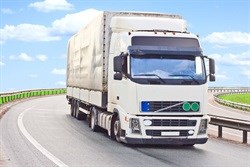The new regulations pertaining to the National Road Traffic Act, which came into effect on 31 October 2014 and on 31 January 2015 (Regulations 330A to 330D), are not good news for both consignors and consignees.
This is according to Alta Swanepoel of Alta Swanepoel & Associates. Swanepoel, who was one of the panel members at Agbiz's Grain Logistics Workshop which recently took place near Johannesburg, said the regulations are, however, certainly good news for South Africa's depleted roads - especially those in rural South Africa.
Section 74A of the Act requires a consignor, as well as a consignee, to take all reasonable steps to avoid overloading a vehicle. Furthermore, in the event of prosecution, the consignor or consignee must be able to indicate what steps were taken to avoid the overloading of vehicles.
Section 74B requires accurate documentation, as it may be used as evidence in a court cases. Regulations 330A and 330B explain in detail the responsibilities of a consignor or consignee. Overloaded trucks are the main reason for damaged roads and the new regulations will ensure that the weight that trucks carry will be calculated more fairly and scientifically.
Consignees accountable
New in the regulations is the fact that consignees could now also be held accountable for ensuring that trucks carry the correct weight as stipulated by law. "Consignees are often the only players who can be identified as the party in the chain who should know what the weight on a truck is and that this is in accordance with the law," Swanepoel said.
Unfit vehicles, unfit drivers, bad and dishonest administrators and bad traffic policing were but some of the realities of driving in South Africa, said Gavin Kelly from the Road Freight Association.
"Traffic policing is inconsistent and there are high levels of corruption among officers, stretching from illegal fines to problems with dockets. Traffic officers have poor technical skills and often cannot even perform not only basic, but also fundamental tasks. They have lost the plot of safety and the free flow of traffic," Kelly said.
"It seems when it comes to freight policy, government believes that, removing trucks from South Africa's roads will solve many problems, including congestion, pollution and road damage. Such a short-sighted approach will damage many business undertakings. The continual threat of the move from road to rail fuels mistrust in the authorities in the majority of policy debates," Kelly said.
Paul Nordengen from the CSIR said there are far too many truck accidents in South Africa and this situation hurts the economy. In South Africa, the cost of logistics as a percentage of the GDP is around 12%. This is almost double that of the United States and 50% more than Japan and Brazil.
Culture of non-compliance
"We have a culture of non-compliance in various spheres and we do not realise the extent of the effect on the economy. There are many unroadworthy trucks on the road and vehicle cost can, for instance, be more than double on a bad road," Nordengen said.
In an effort to promote self-regulation among operators, the CSIR developed the Road Transport Management System (RTMS). This is a government-supported, voluntary, self-regulation scheme, which encourages consignees, consignors and road transport operators to implement a management system. It constitutes a set of standards with outcomes that contribute to preserving road infrastructure, improving road safety and increasing productivity.
South Africa has a transport-hungry economy, requiring more transport activity to generate more rand value, said Nadia Viljoen from Growth and Intelligence Network (GAIN) at the workshop.
This is especially true in the grain industry, as the industry is structured in such a way that it exported a great proportion of maize and imported a great proportion of wheat for local consumption, she said. "These imports and exports have to travel hundreds of kilometres, as maize farms and wheat mills are situated far from ports," Viljoen said.
She pointed out that the costs of logistics constitute a significant concern for the agricultural sector. Apart from the great demand for transport in the grain industry, the agricultural sector, in general, is primarily dependent on road transport, which is relatively expensive, given the low commodity value of grains.








































